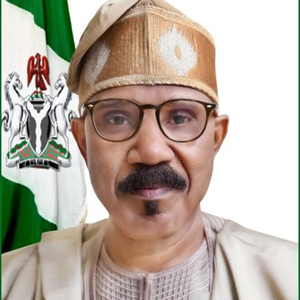By Chimezie Godfrey
Minister of Science, Technology and Innovation, Dr. (Sen.) Adeleke Olorunnimbe Mamora has said that Nigeria through its National Energy Policy have joined the rest of the world in recognising energy efficiency as one of the most cost-effective means of providing energy security, increase economic productivity, reduce local air pollution to enhance mitigation of Greenhouse Gas (GHG) emission.
Dr. Mamora said this at a one day National Stakeholders Consultative Workshop on Energy Efficient and Climate Friendly Cooling organised by the Energy Commission of Nigeria (ECN) today in Abuja.
According to the Minister, It is estimated that by 2030, there will be an unconditional greenhouse gas emission reduction by 20% and a conditional reduction target of 47% below the business as usual (BAU).
To achieve unconditional target of 2.5% reduction in energy intensity of climate change mitigating priority measures, the energy efficiency best practices across various sectors should be meticulously implemented, he said.
He further said that Nigeria being the largest market in Africa with the current growing population, combined with improving life style, urbanization and rising global warming, will continue to experience growing demand for air conditioners (ACs) refrigerators and other cooling devices, thereby, becoming one of the fastest growing ACs and refrigerators market in the world.
Mamora stated that most of the ACs utilized in the country have energy efficiency ratio (EEF) which is below acceptable minimum energy performance standards (MEPS) and then charged the participants in the workshop to proffer lasting solutions to the problem.
To this end, Mamora further said that the workshop will also foster the transfer of technical know-how which will enhance promotion of the adaptation of energy efficient and climate friendly cooling systems in the country.
Earlier, the Director-General of the Energy Commission of Nigeria Professor Eli Jidere Bala said that the Commission is charged with the responsibility of planning and coordination of National Policies in the field of energy in all ramifications.
He also stated that the Commission liaises with international organisations, on energy matters such as United Nations Environment Programme (UNEP) International Renewable Energy Council and International Energy Charter amongst others.




